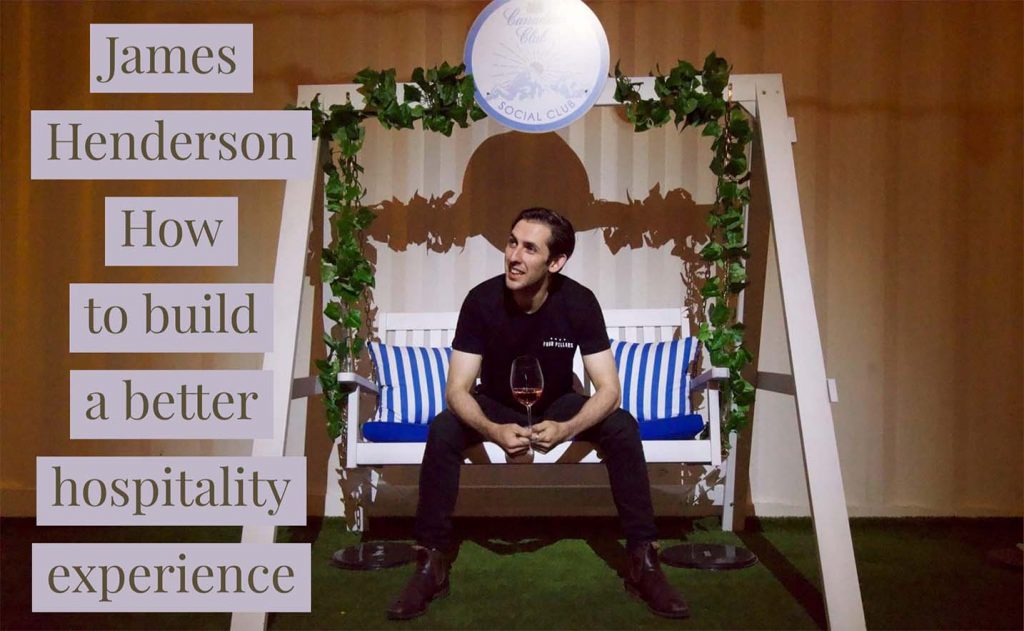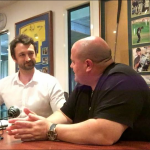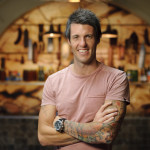James Henderson on How to Build a Better Hospitality Experience
James Henderson has added a lot of titles to his name: podcast host, hospitality innovator, consultant, speaker, and even accidental festival owner. He’s pretty much done it all in the hospitality industry, having worked in bars, restaurants, and hotels. On his podcast, Hospopreneurs, James has interviewed several big names in the industry, including Janine Allis and Phil DiBella. We talked to James about his full-circle experiences in the hospitality industry, from his time as a blender cleaner at Boost Juice to interviewing the founder on his podcast, and his tips for aspiring and struggling business owners.
Building a Better Hospitality Experience
Many bars, cafes and restaurants struggle: first with getting their name out there, then with building and maintaining customer loyalty. To start, focus on providing great products and great service. But it’s about more than just the food and drinks. Hospitality, James says, “engages all five senses.” It’s about the experience – visual, auditory, tactile, and olfactory – that the customer gets when they walk into an establishment. Whether it’s scent of Islay whiskey in a dark mahogany bar, or a bright café perfumed with herbal scents, the immediate sensory experience should attract customers, and tell them what your establishment is about.
The staff also helps complete the experience, for better, and for worse. Staff that welcome guests the moment they walk in, projecting an attitude of positivity and enthusiasm, will be passing it on to the customers. A lack of enthusiasm may do the opposite – or at least discourage any first-timers from visiting again.
Develop a Dedicated Staff
James has devised one simple method of testing his staff’s level of enthusiasm: high fives. If he offers up something as simple as a high five, and they can’t work up the energy to do more than a low five, it reveals to him that they’re not super committed to their role, and they probably don’t want to be there. If you’re not much of a high-fiver, you can develop your own simple metric to gauge individual dedication.
Not everyone, of course, comes into the job with the same level of enthusiasm. And, when things get busy or get tough, you need to keep up the morale so the staff can successfully manage. James suggests boosting morale by listening to staff, whether it’s their complaints, criticisms, or suggestions for solutions to a problem. Listening to staff and implementing their ideas empowers employees, making them feel like they have an influential role in the business. If they have an influential role, then they become more invested in the business’s success. Of course, this kind of advice goes well beyond hospitality, and can help make any business successful.
What Makes a Good Leader
 Good leaders aren’t just always learning – they’re also helping their staff learn and grow, too. Even if, in the end, a valuable staff member ends up leaving your establishment down the road. Help teach your staff how to work in a new role that would be the next step up in their careers, and find out what it is that they really want to do. “Your job as a manager,” James says, “Is to give people fulfilment in their career,” not to pigeonhole them into a certain role.
Good leaders aren’t just always learning – they’re also helping their staff learn and grow, too. Even if, in the end, a valuable staff member ends up leaving your establishment down the road. Help teach your staff how to work in a new role that would be the next step up in their careers, and find out what it is that they really want to do. “Your job as a manager,” James says, “Is to give people fulfilment in their career,” not to pigeonhole them into a certain role.
This sort of good leadership also helps create other leaders. Training staff for new roles, then training that staff to teach newcomers, creates a mutually beneficial cycle of teaching and learning that will continue throughout their careers. You also may learn a new thing or two yourself. James has always been open to learning something new, and that openness to new experiences will help make anyone become a great leader.
Hospitality and Technology
In addition to an interest in hospitality and music, James also has an interest in technology, dating back to his involvement in a start-up that developed a rewards app for bars. He sees exciting things happening in the hospitality industry as a result of this technology. The proliferation of data on both customers and venues will likely help enable both parties to really know what they’re getting into from the start. On the low-end side of hospitality, service is likely to get more efficient and automated to keep costs low and quality consistent.
Despite the trend towards automation, James doesn’t see the human side of hospitality going away anytime soon. “I think that the bespoke creative nature of the industry will remain intact,” James says, “And you’re going to get human-driven experiences that will be more valuable.” It will always be important for humans to connect with one another, even across transactional relationships like those at bars and restaurants. Great people are the secret sauce for any great experience.
The most important thing to know when entering the hospitality industry, according to James, is understanding people. ” You need to understand human behaviour,” he says. “And understand the industry enough so that you can predict what customers want before they ask for it.” That understanding and connection, even if it’s over a few seconds or minutes, will ultimately make the difference for the customer.
Check out James’s Hospopreneurs podcast, or contact him for audio production services to market your hospitality business.
James’s Key Takeaways
- Always be open to learning something new, and to new experiences.
- Listen to people – you’ll never learn and grow if you don’t listen.
- Check out Simon Sinek’s book, Start with Why – or at least his TED talk on the subject.
- Consider the entire experience, from beginning to end, from the food to the staff interaction, when making changes to your establishment.
- Empower your staff by listening to their feedback and suggestions for improving the business.
- As a manager, it’s your responsibility to help your staff progress in their careers and transition into new roles.
- No matter how busy your schedule is, always make sure to take time out of your day to relax and think about things.
Podcast: Play in new window | Download
Subscribe: RSS











